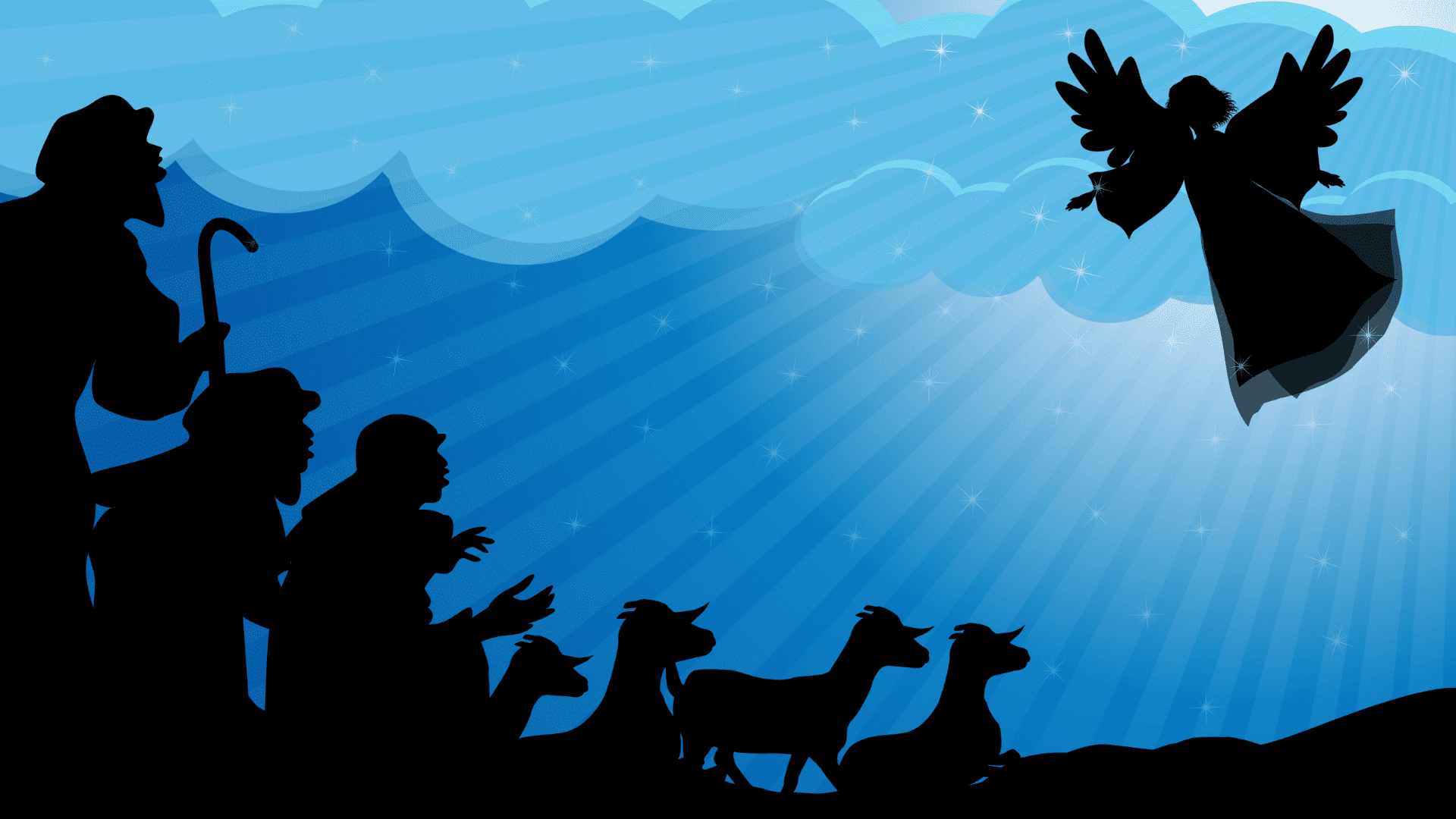A Subversive Christmas (Luke 1:46-55)

Part One: A Time of Waiting
I don't know what kind of year this has been for you. For some it's been a year of blessing. You may have had a child, or moved to a new house, or started a new job. You may have had a particularly successful year for some reason. As you celebrate Christmas tomorrow, you can reflect on it and say, "This year has been good." God has been good."
But I know that for some of us, this has been a year that we will not soon miss. I talked to someone recently who has been through difficulty. They observed that as others became aware of some of their circumstances, they've been surprised how many have said, "I know, I've been through that too." We don't know what others have experienced in terms of health, family, work, and friendships. It's hard for some of us to come to Christmas and New Year's without feeling a little bit of pain, a little bit of regret, for what might have happened over the past year.
Some of us have felt like our lives have been out of our control, no matter if it's been good or bad. Have you ever been through a difficult time, and it's felt that anything you do to try to make things better ends up backfiring on you? You get to the point at which you just lift your hands and say, "All right. I can't do anything to make this better. All I can try to do is hold on until it's over and hope that I make it through to the other side."
The reason that I bring all of this up is because I want us to look at the Christmas story differently with you. Many of us know the story quite well: shepherds and angels, Magi and gold, frankincense, and myrrh. We know the songs and the events quite well. Today, though, I don't want to just look at the Christmas story. I'd like us to find our place in the Christmas story, to make the story our story in a way that's never happened before.
The past couple of weeks, we've been looking at what the world was like when Jesus was born. For some in Jesus' day, it was the best of times. The world was ruled in that time by Caesar Augustus. The entire world was united under one ruler and was enjoying an unprecedented period of peace and prosperity. Augustus celebrated his life by calling himself the son of a god who brings peace and salvation to the world. He called himself a savior. The economy flourished under his rule, and you could travel and communicate like never before. Caesar Augustus promised the world, and for many people who were alive that day, he delivered.
We've also looked at Herod, Caesar's puppet king in Judea, the land where Jesus was born. Herod's day was the golden age for many of the ancient buildings people go to see in Israel today. He constructed huge buildings. It was said that you had never seen a beautiful building until you had seen the Temple that Herod had built. Herod was perhaps the richest man who has ever lived, acquiring massive wealth and power. For those who were connected with Herod and who were spared his paranoia, life could be very good.
Some people today may not relate to the Christmas story when they read about the achievements, influence, and riches of figures like Caesar and Herod. Because for some who were part of the Christmas story, it was not the best of times. It was the worst. It was a time of longing and pain and even of despair and doubt.
People of faith who lived in Israel at that time knew God's promises. They knew that God had given them the land where they lived, and had promised to bless those who blessed them, and curse those who cursed them. But as they looked around, they found it hard to imagine how things had gone so wrong.
The Roman rule was bad for people who did not experience the promised peace. Caesar Augustus ordered a census of the whole Roman world for tax reasons, which was not good. It wasn't what God had promised, but Caesar's kingdom looked all powerful. There was nothing you could do.
Taxation rates were 70 percent and up. Some guess that people were being taxed up to 90 percent. People in that day were struggling to make enough to pay their taxes and provide for their families. They were going into debt to try to make it by. Some people were losing their inherited properties that had been passed down in their families for many generations. These properties were originally given to them by God when they entered the land that he had promised to them. The rich kept on getting richer, but there was little hope for the common man or woman.
Injustice was a way of life. The tax collector had to take Caesar and Herod's share, but he could take whatever he wanted for himself. Those who had the misfortune of coming to Herod's attention could be slaughtered for no good reason at all. You could be one of the thousands of people who were killed by Herod. Or you could be one of the tens of thousands who worked for Herod directly – brutal work for next to nothing. Or one of the hundreds of thousands who gave almost everything they made to a paranoid and egotistical king.
The people of that day were hungry, downtrodden, and discouraged, and there was little they could do. There was no way for them to fight the system. The Zealots tried to solve the problem by rebelling, but it only made things worse.
You can sense the despair and fatalism. Will Caesar and Herod remain in power indefinitely? The rich keep getting richer, the paranoid more paranoid. There would have been a profound sense of doubt. People would ask, "God, if you're so powerful, why is Herod still on the throne? God, if your Word is so reliable, why is Caesar in charge?" A whole nation of people is waiting.
You may find yourself in this story today asking similar questions, expressing similar doubts. God, have you forgotten us? God, if you're in charge, why the cancer? Why the divorce? God, how long? Why am I going through all of this? Why does it seem like you're not in charge?
Can you find yourself in the Christmas story, feeling longing, waiting, questions, and doubt? Where in your life are you struggling with despair, longing to provide what God has promised? Where do you have questions, and you're longing for God to come through? Take a moment to immerse yourself in the Christmas story. Feel the sense of longing, waiting, questioning, and the desire for what God has promised.
Part Two: A Time of Revolution
In a time of waiting, injustice, discouragement, and despair, an angel appears to a young peasant girl, who is only 13 or 14 years old. The angel says:
You will conceive and give birth to a son, and you are to call him Jesus. He will be great and will be called the Son of the Most High. The Lord God will give him the throne of his father David, and he will reign over the house of Jacob forever; his kingdom will never end. (Luke 1:31-33)
The young girl's name is Mary. In a time when Caesars and kings and generals have all the power, the angel does not appear to Caesar or to Herod or to a general or a noble. The angel appears to a young girl and says that a king is being born, that Caesar and Herod are going down, and that a baby will be born who will reign forever and ever, not just over Israel but over the entire world.
Mary has some questions about how this will happen, but she accepts the angel's answers. She says to the angel, "I am the Lord's servant. May it be to me according to your word" (Luke 1:28). As soon as the angel left Mary, she hurried down to the home of her older relative, Elizabeth, to share the good news. Elizabeth, too, was going to have a baby. The moment that Elizabeth hears Mary's voice, she bursts into poetic blessing over Mary. Elizabeth confirms that Mary is pregnant with the Son of David, the Messiah, the king that all Israel has longed for. And Mary echoes back with a song of her own:
My soul glorifies the Lord
and my spirit rejoices in God my Savior,
for he has been mindful
of the humble state of his servant.
From now on all generations will call me blessed,
for the Mighty One has done great thingse for me—
holy is his name.
His mercy extends to those who fear him,
from generation to generation.
He has performed mighty deeds with his arm;
he has scattered those who are proud in their inmost thoughts.
He has brought down rulers from their thrones
but has lifted up the humble.
He has filled the hungry with good things
but has sent the rich away empty.
He has helped his servant Israel,
remembering to be merciful
to Abraham and his descendants forever,
just as he promised our ancestors."
(Luke 1:46-55)
It's an amazing song. It's amazing first because it's chock-full of Scripture. Every word is full of meaning. Mary has immersed herself in the stream of Scripture and understands what God is doing in the world.
What's really amazing about this song is that it is revolutionary. Mary sings a song of triumph that at a time when Caesar and Herod and injustice and despair were on the throne, a king has been born, and this king will establish justice and reign forever. A baby is being born, and Caesar is going down and Herod is going down. It's a subversive and revolutionary song.
When Mary announces, "He has brought down rulers from their thrones," she's saying something about Caesar. "He has sent the rick away empty" sends a message about Herod. But God through Jesus is lifting the humble, filing the hungry with good things. Mary was more than a sweet, humble, quiet girl. She is a rebel, a revolutionary, a social protester. God was using her to set loose the power of God and the good news of his kingdom and to bring down injustice and oppression. One historian has called this the most muscular poem in all of ancient literature, and it was sung by a young peasant girl.
This song tells us that God is not divorced from history. God does not just live in the spiritual aisle of the grocery store. God has power over the powerful over our world. "The Most High God is sovereign over the kingdoms on earth" (Daniel 5:21). He's not only concerned with getting people to heaven. He's also launching a political and economic revolution. For those of us who long for forgiveness of sins and reconciliation with God and also an end to injustice and for things to be set right, Jesus is the king. And he will reign forever and ever.
So Caesar and Herod don't have the last word. Cancer and divorce and injustice and suffering don't have the last word. God has the last word. And God did not send his Son to just reign over the religious part of life, the church part. God sent his Son to set all things right. And his reign has begun, but one day it will be fully here. God himself will be with us and be our God. He will wipe every tear from our eyes. There will be no more death or mourning or crying or pain, for the old order of things has passed away.
If you're longing for that, Mary has good news for us. A baby has been born. Caesar and Herod don't have the last word. God has the last word. That's what Mary celebrated, and that's what we celebrate at Christmas.
Part Three: A Time for us to Ponder
You and I have the privilege of knowing what God is doing in the world. We, like Mary, have been let in on the secret. Mary physically carried the good news within her body for nine months, and after that we read that Mary "treasured up all these things and pondered them in her heart" (Luke 2:19).
Mary is doing more than remembering, like a mother might do as she thinks about the birth of her child. She is trying to put things together here. She is treasuring up all these words, pondering in her heart what they might mean.
My prayer for you is that you would take these revolutionary and subversive words about the reign of Jesus Christ and that you would likewise treasure up all these words, and ponder in your heart what they might mean for your life.
I pray that those of you who are longing for a fresh start would come to Jesus, who was born to "save his people from their sins" (Matthew 1:21).
May those of us who are crushed under a weight of oppression and injustice and suffering ponder the one who came to topple unjust rulers from their thrones, and to lift the humble and to fill the hungry with good things.
And may we remember that a baby has been born, not just to occupy the religious department of our lives. A baby has been born who is king over all the world, and "he will reign over the house of Jacob forever; his kingdom will never end" (Luke 1:33).
May you treasure and ponder these words, and may they change not only your life, but the lives of everyone around you. May you, like Mary, carry the subversive message of Jesus.
(inspired by the series "A Revolutionary Christmas" by Rob Bell)





